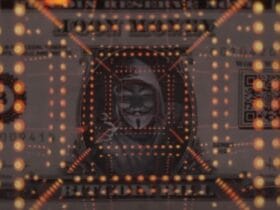Callebtc defended that miners act without ideology and only seek economic efficiency.
His statements arise in the midst of the debate about the possible soft fork and the “node war” in Bitcoin.
The Bitcoin developer known on X as Callebtc published an analysis in which he commented on the role he believes miners should play in Bitcoin.
The message, broadcast on that social network on October 28, emphasizes that the miners They should not act as ideological actors nor as representatives of the consensus, but rather limited to their technical function: securing the network and producing valid blocks.
In his text, Callebtc was emphatic:
I love my Bitcoin miners dumb. I want miners without ideology, without morals and without a savior complex. I want them to be economically rational and their only goals are to find cheap energy and use efficient chips.
Callebtc, bitcoiner developer.
Although the developer did not explicitly relate it, its publication occurred the day after the statements of the co-founder of the F2Pool mining pool. As reported by CriptoNoticias, Chun Wang intervened in the debate on the possible soft fork (soft fork) that part of the community discusses, within the framework of the so-called “node war”.
Callebtc explained that miners should focus exclusively on that function. In your visionBitcoin’s address and its consensus must be determined by those who run nodes, not by those who provide computing power.
Miners mine blocks and nothing else. They do not determine the direction of Bitcoin. They don’t speak for us. I don’t want them to defend our interests, but theirs: mining the most efficient blocks. If they can’t compete in an unforgiving market, I want them to die and be replaced by more efficient miners.
Callebtc, bitcoiner developer.
Callebtc’s approach points to a strict separation between economic incentives and governance decisions.
Under this logic, the miners should act as market agents competing for efficiency. This, while the consensus of the network (that is, what rules define which blocks are valid) corresponds to the nodes, which verify the transactions and apply the rules of the protocol.
Callebtc’s publication generated reactions within the technical environment of Bitcoin. One of the most notable comments was from developer Skot, who responded:
I think that’s what led us to this silly situation: everyone bought Bitmain machines and pointed them at AntPool and his friends.
Skot, Bitcoin developer.
With that response, he suggested that the lack of judgment among the miners was already caused a concentration of power in large mining pools. I cite as an example the case of AntPool, associated with the company Bitmain, one of the largest manufacturers of ASIC equipment.
The debate between Callebtc and other developers is another example that the “node war” continues to fuel discussions on many fronts within the bitcoiner community.






Leave a Reply